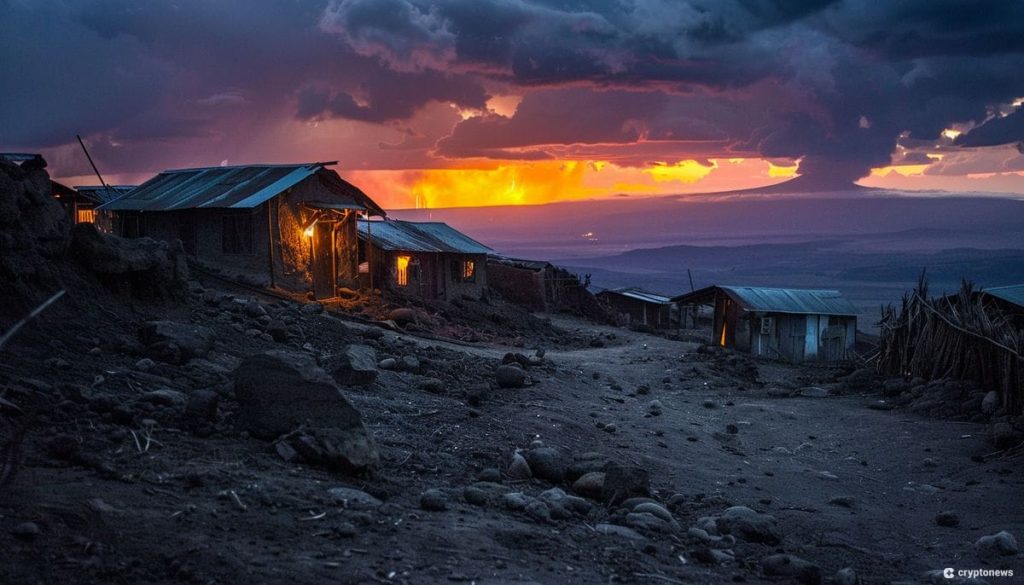In a remote region of Kenya, a group of Bitcoin miners has found an innovative way to power their operations and bring electricity to rural homes.
Located near Hell’s Gate National Park, the miners have set up shop at the site of an extinct volcano, where they utilize a mobile container equipped with solar power and energy from a nearby geothermal site.
This unique setup allows them to mine Bitcoin while simultaneously electrifying local communities.
The venture is led by a startup called Gridless, backed by Jack Dorsey’s Block.
Gridless Operates Six Mines
Gridless operates six mines across Kenya, Malawi, and Zambia, all powered by a combination of renewable energy sources.
“Most people think about bitcoin and the price of bitcoin and how they can save value in it or maybe spend it,” Gridless CEO Erik Hersman told CNBC.
“That doesn’t happen without the bitcoin miners and us being globally distributed.”
Bitcoin mining is a process that requires substantial amounts of electricity. Miners worldwide run powerful computers to validate transactions and create new tokens.
Seeking the cheapest sources of power, miners often face challenges due to fluctuating cryptocurrency prices.
However, the recent surge in Bitcoin’s value has renewed interest in mining operations, making it more profitable to continue supporting the network.
Analysts predict a shift in the geography of crypto mining following the recent halving event, as profit margins become slimmer.
Countries with lower energy costs, such as those in Latin America, Africa, and the Middle East, are attracting crypto miners.
This presents an opportunity for renewable energy developers in these regions to utilize their excess power and support the expanding Bitcoin network.
Gridless’ Bitcoin Mining Operations Serve Dual Purpose
Gridless, founded by Hersman and his co-founders Philip Walton and Janet Maingi, aims to bridge the gap between power generation and capacity in Africa.
With approximately 600 million people lacking access to electricity, the company’s Bitcoin mining operations serve a dual purpose.
They harness renewable energy sources that would otherwise go to waste and provide electricity to homes and businesses in underserved communities.
The volcanic region where Gridless operates, known as Hell’s Gate, has a rich history and is home to diverse wildlife.
By leveraging the energy potential of volcanoes, geothermal power stations have been established in the area.
This approach is not unique to Kenya; other countries like Iceland and El Salvador have also harnessed geothermal energy for Bitcoin mining.
Bitcoin mining has faced criticism due to its energy consumption. However, when coupled with renewable energy sources, it can help unlock trapped renewable power and incentivize increased production.
Bitcoin miners act as energy buyers, utilizing excess power from renewable sources and providing financial incentives for further development.
Gridless has not only powered thousands of households but also facilitated containerized cold storage for local farmers, charging stations for electric motorcycles, and public WiFi points.
Through its mining operations, the company is making renewable energy economically viable in Africa while contributing to the secure functioning of the Bitcoin network.
“It’s not really sexy,” Hersman said.
“It’s a mining container made from a shipping container. It’s got a bunch of dumb machines sitting in it running the same equation over and over again, but it’s actually what secures the network.”
Read the full article here
